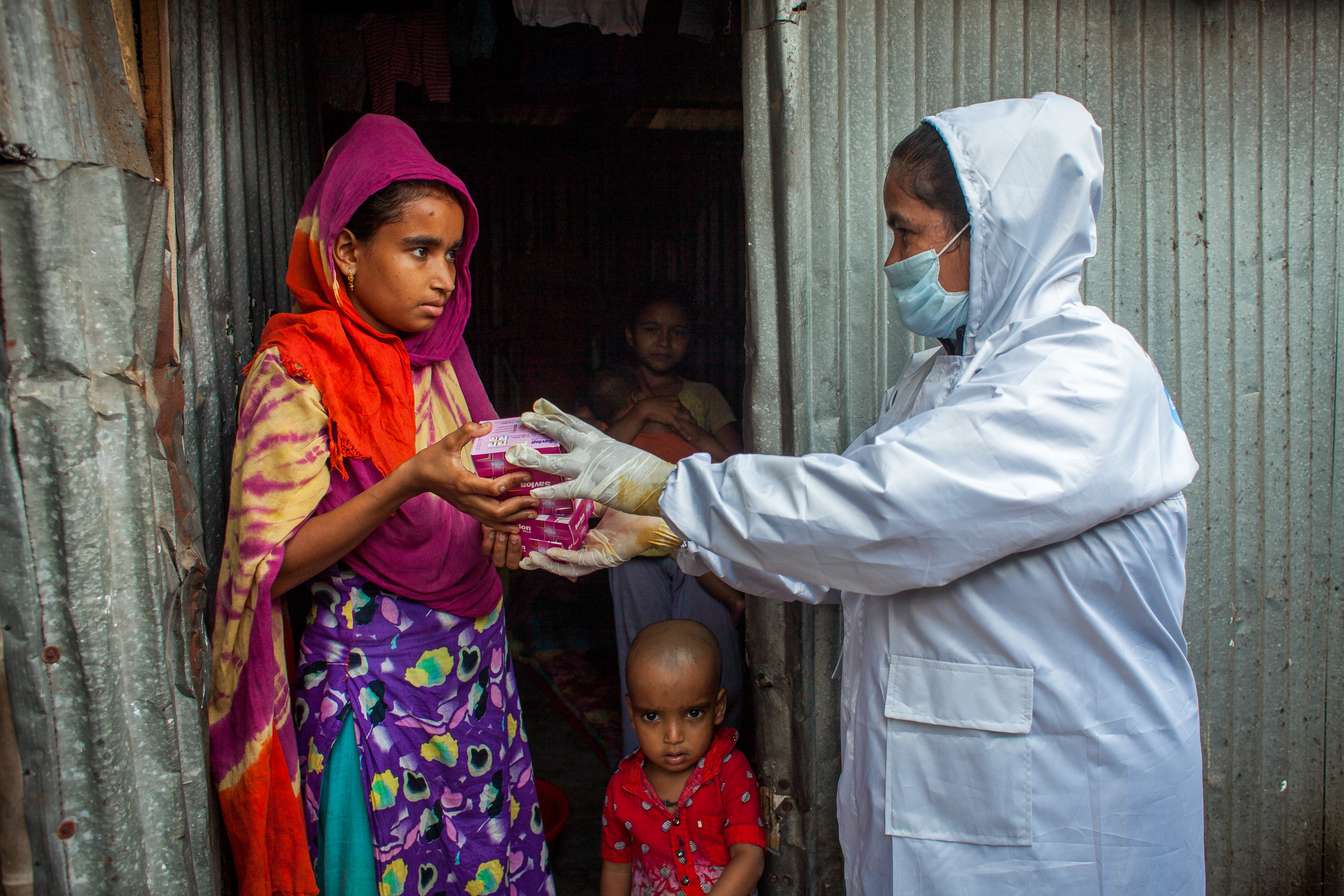Inclusive public services and justice for all


Photo Credit: UNDP Bangladesh
By Natalia Baratashvili, UNDP Georgia and Mariana Neves, UNDP Oslo Governance Centre
The Covid-19 pandemic has spotlighted that no matter the development context, access to services remains a privilege for certain groups of people. Others often have to battle unequal access and discrimination in obtaining health, education and other government services.
A 2020 report on access to public services during the COVID-19 pandemic in the United Kingdom, for example, indicated that “Black, Asian and Minority Ethnic and Gypsy, Roma and Traveller people, homeless people, and people with complex needs” were not as easily able to access public services during the pandemic. But the challenges of inclusion in public services and the judiciary are not solely a result of the pandemic, but symptoms of deeper structural inequalities.
Representation and participation of different population groups in parliaments, public service and judiciary as critical to achieving peace justice and inclusion is included in the 2030 Agenda for Sustainable Development and its target 16.7. Countries are encouraged to leave no one behind by being more inclusive and having representative governance that promotes policies that are gender sensitive, inclusive of persons with disabilities, recognize barriers youth and elderly face, and ensure accessible services by marginalized populations.
As the custodian for indicators on representation in the public service and the judiciary, UNDP launched the first global call for data on representation on public service (SDG 16.7.1b) and representation in the judiciary (SDG 16.7.1c). Countries have submitted data disaggregated by sex, age, disability, and nationally relevant population groups (e.g., ethnicity, race, religion). Global data on these indicators will be available for the first time at the end of 2021.
With over 40 countries reporting on their progress on the indicator, we already see how data collection is being leveraged to influence and inform policy making:
- The National Statistics Office in Bangladesh is coordinating with different ministries to collect relevant data from across the public service.
- A new centralized public service data management system has been developed in Togo.
- The Moldovan National Statistics Office is investing in statistical literacy and sex-disaggregated data of the public service.
- In Georgia, in addition to supporting data collection on the indicator, civil society organizations are collaborating with the public sector actors on tackling challenges that prevent vulnerable groups in accessing services.
Understanding the composition of the public service and the judiciary can help us to hold up a mirror to society. If people feel the public service does not adequately reflect them nor understand their realities, there is a risk that they will opt out completely as they see the state as not responsive to their priorities. Conversely, an inclusive public service and judiciary can help to (re)build trust in institutions. To gain this understanding of how different population groups are impacted, disaggregated data on representation is critical.
Data will also help us better understand some of the long-standing barriers that women, minority groups, and persons with disabilities face with career progression and breaking barriers.
In Kenya, for example, we see for the first time in its 115-year history, a female Chief Justice, Martha Karambu Koome was elected. She and her colleagues Philomena Mwilu, Deputy Chief Justice and Anne Atieno Amadi, Chief Registrar (see picture) are breaking glass ceilings as they lead the work of the judiciary in Kenya. By understanding the gaps and putting in place polices to address them, there is an opportunity to show future generations that we stood up when it truly mattered.
But representation is only the first step to overcoming discrimination, marginalization, and exclusion. We cannot be complacent and must continuously invest in laws and polices so that public services are inclusive, and the judiciary truly provides access to justice for all.
For now, as we witness increasing numbers of countries trying to understand where they stand – and how much further they need to go - on improving representation in the public service and judiciary, it is hopeful that there is consensus, not least through the adoption of the SDG indicators, that diversity and representation in decision-making processes matters.

 Locations
Locations